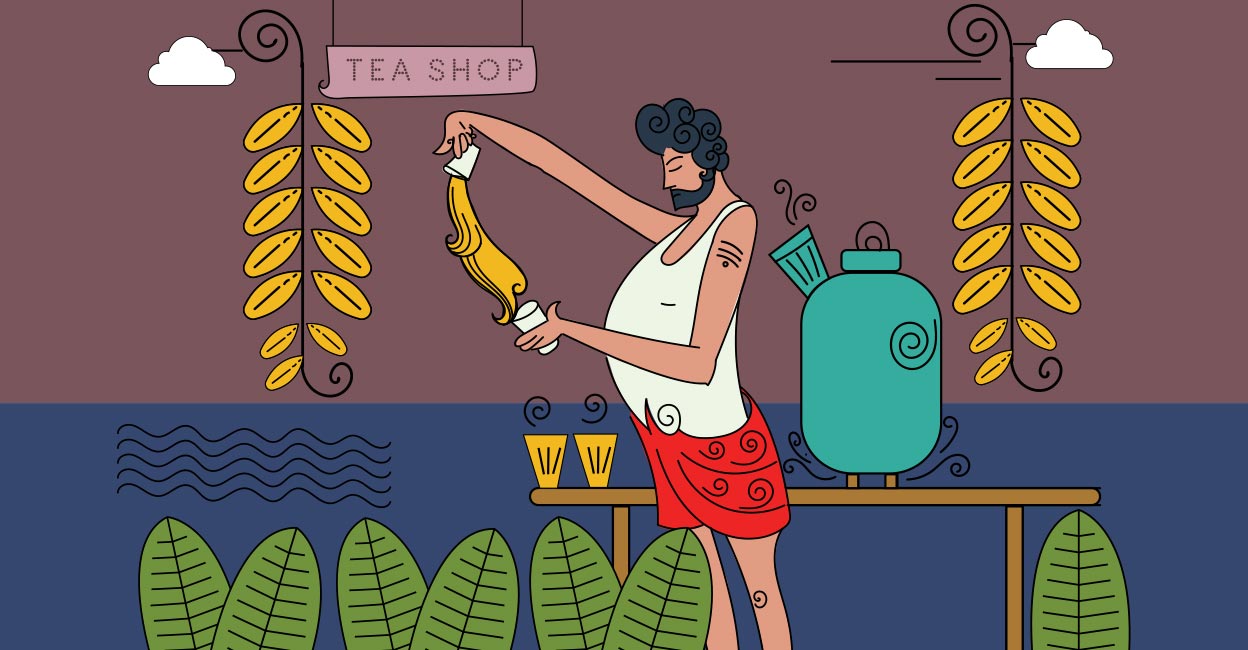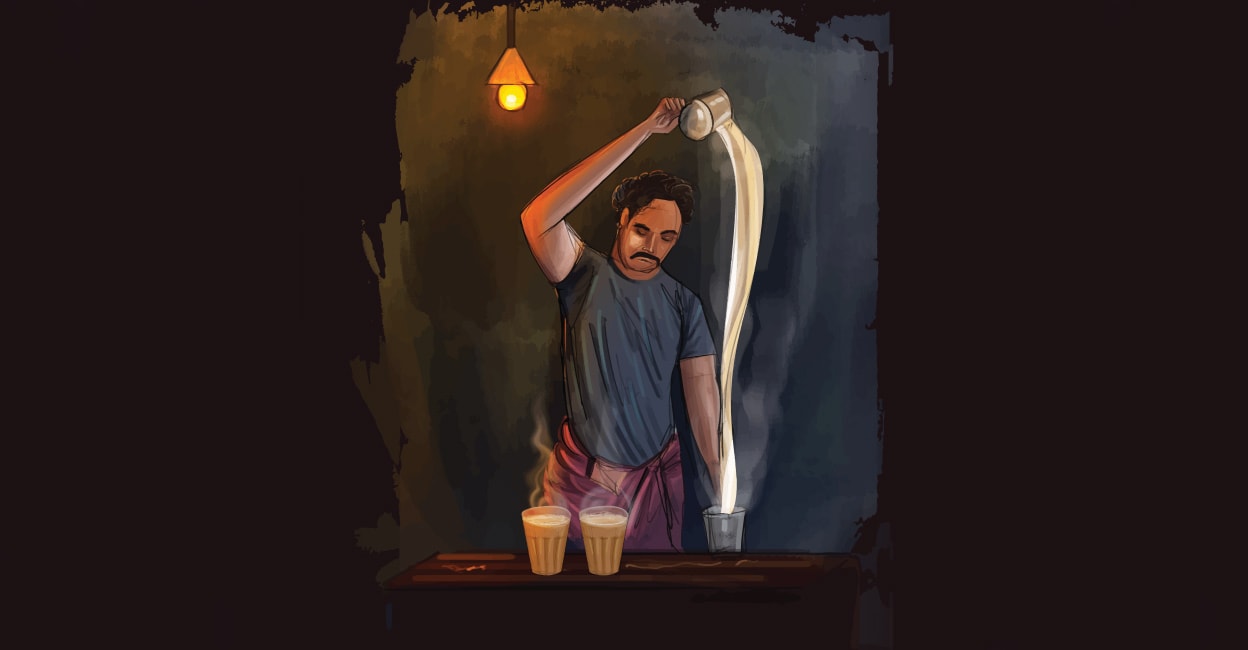Visiting Kerala? Here’s why you should eat at a thattukada

Mail This Article
For many foreign travellers, Indian street food can be a subject of intrigue and apprehension. The allure of vibrant flavours and aromatic spices is often tempered by concerns about hygiene, food safety, and stomach sensitivities. However, Kerala’s thattukadas – the state’s version of street food stalls – offer a fresh take on the street food experience. They stand out not only for their flavourful, authentic cuisine but also for how they challenge these preconceived notions.
Kerala’s thattukadas serve food that rich in flavour, steeped in tradition, and cooked with the heart and soul of Kerala. Eating at a thattukada is not only a delicious culinary experience but also an immersion into the local culture, a chance to interact with the people, and a gateway to understanding the region's diverse food heritage.
What is a thattukada?
A thattukada is Kerala's version of a street-side food stall, often run by local families or small-time vendors. These pop-up eateries are typically set up on the roadside with small tables (thattu), a makeshift grill or stove, and a wide variety of freshly prepared local dishes. They’re simple yet charming, offering a window into the day-to-day culinary life of the region. Thattukadas offer some of the most authentic and flavourful dishes Kerala has to offer - all without burning a hole in your pockets. The sight of a sizzling porotta (flaky flatbread) being cooked right before you is enough to draw anyone in.

Affordability without sacrificing quality
One of the reasons thattukadas are so popular is their unparalleled affordability. A filling meal costs a fraction of what it would at a restaurant. Despite their low prices, thattukadas never compromise on quality or flavour. From flavourful curries to crispy dosa and juicy fried chicken, you’ll find some of Kerala’s most beloved dishes at these stalls. Locals, students, workers, and budget-conscious tourists often flock to thattukadas for a delicious meal cost-effectively.
A social experience
Eating at a thattukada is more than just about the food – it’s a cultural experience. You’ll often find locals chatting, catching up on the latest news, and sharing stories while waiting for their meals. The open setup, where food is prepared right before you, adds a sense of transparency and trust as well, while the casual atmosphere makes it easy to start conversations with fellow diners.
Hygiene and freshness
Despite their simple setup, thattukadas are generally known for serving fresh food. The quick service also makes it ideal for travellers looking to grab a meal on the go without sacrificing quality or authenticity. Though some travellers may initially hesitate to eat street food due to concerns about hygiene, many thattukadas in Kerala maintain clean, hygienic practices. The key is to choose stalls with a steady customer flow, ensuring that the food is fresh and hasn’t been sitting out for long. Food is often prepared in full view of customers, allowing diners to observe the cooking process and ensure it meets their hygiene standards.
Regulations and safety
While hotels and restaurants require various licenses to operate, thattukada vendors are typically required to just register with the Food Safety and Standards Authority of India (FSSAI) for a small annual fee. This simple registration ensures that they follow basic food safety regulations, providing customers with a level of trust. While there are occasional concerns about hygiene in some stalls, many thattukadas have earned loyal followings for their consistent quality and cleanliness.

Quick service and convenience
One of the greatest perks of eating at a thattukada is the speed of service. Unlike in restaurants where you may wait for your meal, food at thattukadas is prepared swiftly. This makes them perfect for travellers on the go who want to grab a quick yet satisfying meal. Many thattukadas also offer the convenience of take-out, where you can enjoy your food while exploring Kerala’s beaches or scenic spots. The rise of food trucks in Kerala has also given thattukadas a modern twist, with vendors now catering to larger crowds at popular locations.
Most thattukadas open in the late afternoon and stay bustling until well past midnight. They can be found near beaches, market areas, and other lively night-time spots. People from all walks of life gather at these stalls, attracted by the aroma of freshly cooked food and the chance to indulge in the unique flavours of Kerala. Despite the challenges posed by the COVID-19 pandemic, that okadas have bounced back and continued to thrive, adapting to new safety protocols while maintaining their charm.
A few considerations
While many thattukadas have a reputation for cleanliness and quality, there are occasional instances where certain stalls may not adhere to the best practices. The lack of regular inspections has led to sporadic concerns about hygiene in a few cases. However, these instances are outliers. Many thattukadas have operated for years without complaints, consistently offering excellent food in safe conditions. Regular customers often return to the same stalls, confident in the quality and hygiene they’ve come to trust.
So, if you’re visiting Kerala, don’t hesitate to try a meal at a thattukada. Whether you’re on a budget, in search of authentic local flavours, or simply want to enjoy a unique culinary experience, thattukadas are the perfect place to do so. Embrace the local street food scene, and you’ll leave with not just a full stomach but a richer understanding of Kerala’s food traditions.


